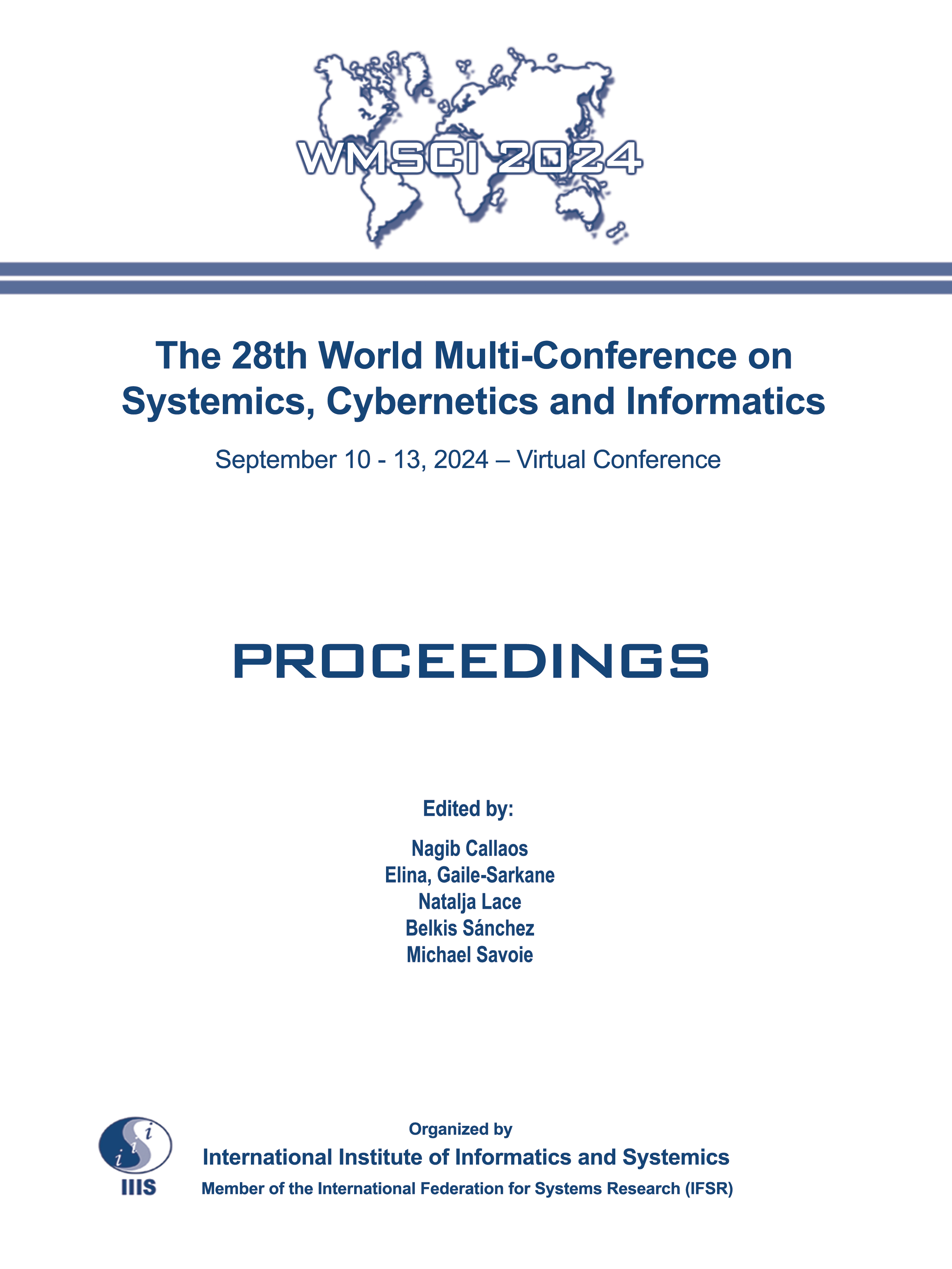2024 Summer Conferences Proceedings

|
Possibilities for the Development of Human Capital Efficiency Assessment Monitoring System in Latvia
Ilze Sproge, Natalja Lace, Sandra Jekabsone, Irina Skribane
Proceedings of the 28th World Multi-Conference on Systemics, Cybernetics and Informatics: WMSCI 2024, pp. 307-311 (2024); https://doi.org/10.54808/WMSCI2024.01.307
|
The 28th World Multi-Conference on Systemics, Cybernetics and Informatics: WMSCI 2024
Virtual Conference September 10 - 13, 2024 Proceedings of WMSCI 2024 ISSN: 2771-0947 (Print) ISBN (Volume): 978-1-950492-79-4 (Print) |
|
Abstract
Human capital comprises a complex and broad set of human components as part of society. This includes assets such as education, training, intelligence, skills, health, and other things (talent, intelligence, judgment, wisdom, punctuality) that an individual possesses, increasing productivity. As part of the overall capital, human capital generates tangible values in the enterprise and enhances society's well-being. This is one of the most important factors affecting the labor market, employment, and development in line with the current economic situation. However, it is very difficult to assess the achievements objectively and realize human capital based on the results of the work, as formal information cannot fully provide all the skills and qualities that an individual possesses and the additional values of human capital that a person has acquired in his or her process of action. Since human capital is inseparable from its holder, human beings themselves, the degree of return on its use is determined by the individual's free expression of will, individual interests, material and moral interest, responsibility, worldview, and general cultural level. The study aims to evaluate the human capital evaluation methods and the possibilities of implementing the human capital monitoring system in Latvia. To achieve the study's objective, an analysis of human capital components will be carried out, indicators characterizing human capital and its assessment approaches will be examined, and possibilities to develop the human capital assessment monitoring system in Latvia will be examined.
|
||




